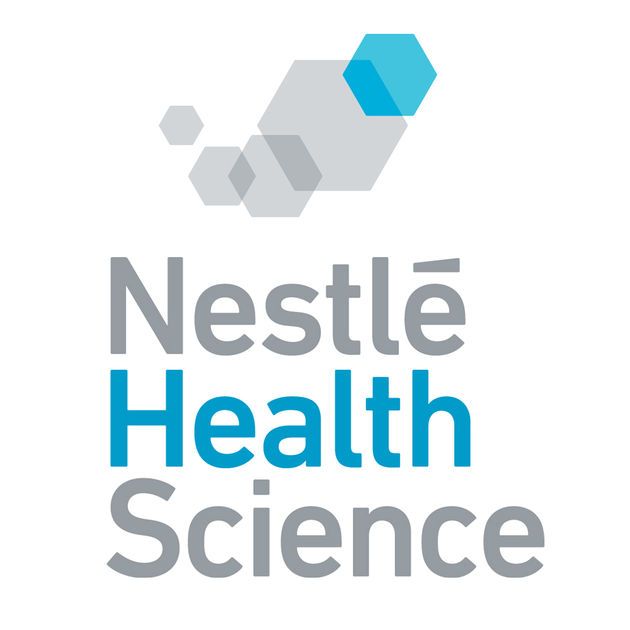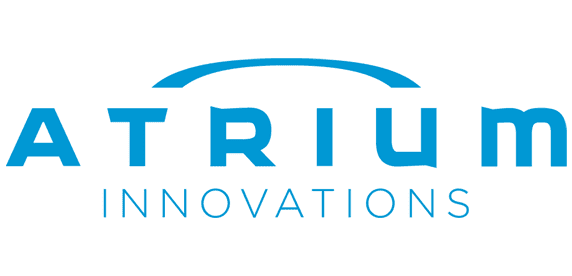With its recent acquisition of one of the world’s top supplement companies, and the nearly simultaneous sell-off of its US confectionary business, Nestlé is making a strong bid to position itself as a force for health and healing.
In December, the global food and beverage giant announced that it was acquiring Atrium Innovations, a Canadian company that holds several of the top practitioner-focused nutraceutical brands—for $2.3 billion in cash. The Swiss conglomerate will seat Atrium in its Nestlé Health Science division.

Atrium’s portfolio includes Pure Encapsulations—a brand that consistently ranks among the top three most dispensed professional brand in Holistic Primary Care’s annual practitioner surveys. The company also holds Douglas Laboratories, Seroyal, Sedona Labs, Wobenzym, and several other companies within the holistic and functional medicine space.
Atrium also owns Garden of Life, one of the best-selling direct-to-consumer retail supplement brands.
Just weeks after sealing the deal with Atrium, Nestlé announced that it was selling its US confectionary business, which includes Butterfinger, Crunch, BabyRuth, and other mega-glycemic treats, to Italian chocolate king, Ferrero—owner of the popular Nutella chocolate spreads–for 2.8 billion Swiss francs (roughly $2.9 billion). The sum neatly offsets Nestlé’s cost for acquiring Atrium.
Nestlé is the world’s largest food and beverage company. It employs approximately 50,000 people in the US, and has a huge presence across the consumer landscape. Its US operations grossed well over $27 billion in 2016, and Nestlé-owned products are present in 97% of all American homes.
Nestlé Health Science is already deeply engaged with large mainstream healthcare systems, with reps currently calling on roughly 4,500 US hospitals and clinics, and an additional 1,500 in Canada. The division owns various medical and post-surgical nutrition product lines used in a wide range of clinical settings for everything from “inborn errors of metabolism” to cancer care.
“The goal of our business is to provide practitioners with the best possible tools. We want to continue to see that grow, and have our practitioner brands play a more significant and influential role in the future of medicine.”–Kyle Bliffert, Atrium Innovations
The merger has massive potential to bring Atrium’s practitioner-only nutraceutical lines into large medical centers and clinical networks previously inaccessible to smaller supplement companies.
On its own, Pure Encapsulations had already made inroads into some mainstream clinical settings, most notably the Cleveland Clinic, to which the company donated $1 million to help establish the clinic’s Center for Functional Medicine.
“A Legitimizing Moment”
According to Kyle Bliffert, President of Practitioner Brands at Atrium, the acquisition by Nestlé is, “a legitimizing moment” for the dietary supplement industry, and especially for the segment focused on healthcare professionals.
Bliffert, a seasoned industry veteran who led the team that built Pure and Douglas to their present best-selling status, told Holistic Primary Care that the merger reflects a broader convergence of mainstream and “alternative” medicine.
“The intersection of conventional allopathic medicine and integrative functional medicine continues to get closer and closer. We’re seeing conventional practitioners using and recommending nutritional products, and in many instances recommending professional-only brands. We want to see that grow.”
Nestlé Health Science has resources for clinical research, new product innovation, and marketing far beyond that of most practitioner-facing supplement brands—even the larger ones. Bliffert and his team hope to tap those resources in ways that will have major impact on healthcare at large.
The trend is very clear: health and wellbeing are very much on the table at the world’s largest corporate boardrooms.
“The goal of our business is to provide practitioners with the best possible tools. We want to continue to see that grow, and have our practitioner brands play a more significant and influential role in  the future of medicine. If we have the right philosophy, and horsepower, and partnership behind that, we can positively impact the direction of medicine as we go forward.”
the future of medicine. If we have the right philosophy, and horsepower, and partnership behind that, we can positively impact the direction of medicine as we go forward.”
Many industry-watchers are calling the Nestlé-Atrium deal a watershed moment in the evolution of the natural products industry as a whole, one that indicates the degree to which the worlds biggest businesses are recognizing the importance of good nutrition, and the public demand for it.
Clinicians Raise Concerns
That said, some clinicians who’ve been long-time customers of these companies worry that the fiscal imperatives of multinational corporations like Nestlé will distort the core values on which brands like Pure, Douglas, and Seroyal were originally founded.
Some practitioners are quick to point out that for generations, Nestlé has reaped huge profits in part by selling sugar-laden, nutritionally questionable food products that fuel diabetes, obesity, chronic inflammation, dental decay and a host of other lifestyle-related disorders.
Further, Nestlé also has a questionable track record on environmental issues. The company has been aggressive in the US and worldwide in acquiring aquifers—some on public lands–to supply its bottled water business, which is one of the world’s largest. It has also been cited in allegations of child labor exploitation in its cocoa harvesting operations. The latter is an issue the company has acknowledged.
Shortly after the acquisition announcement, a number of practitioners who currently dispense Atrium’s pro-only brands took to social media, voicing discontent about the deal. Some vowed to switch to other professional-only brands that remain independent or at least unaffiliated with massive multinationals.
Nestlé declined HPC’s request to interview company executives for this article.
For his part, Bliffert says he’s aware of the dissent and the concerns that some practitioners have expressed. Though he is unable to comment specifically about Nestlé’s bottled water business, it’s chocolate companies, or the child labor issue, he pointed out that in it’s earliest days, the company had its roots in health and wellness, and that in many ways it is returning to those roots.
“About 150 years ago, Nestlé started as one of the first companies to provide infant formula to mothers unable to breastfeed. They were committed to health & wellness from the beginning.”
Corporate Awakening or Cooptation?
In divesting itself of its venerable candy business—at least partially, as the Ferrero deal only concerns the US segment of Nestlé’s confectionery holdings—and investing heavily in the nutraceutical sector, the corporation is certainly attempting to walk its talk.
But that move likely had fiscal motivations as well. For the past four years, Nestlé’s annual revenue growth has been well short of its 5%-6% targets, and in 2017 the company as a whole experienced its slowest growth rate–a mere 2.4%–in a century, according to a recent report in the Financial Times.
In brief, profit margins on commodity consumer goods and packaged foods are very slim these days, while the margins on specialty health-related items like dietary supplements are much bigger.
 Still, Bliffert says the mission of Nestlé Health Science—which has its own CEO, and operates more or less as an independent company–is “all about nutritional solutions to improve patient outcomes, promote dietary management of disease, and enhance patients’ quality of life. If you think about that as it relates to the Atrium overall mission statement which is “empowering healthier lives,” the two fit very nicely together.”
Still, Bliffert says the mission of Nestlé Health Science—which has its own CEO, and operates more or less as an independent company–is “all about nutritional solutions to improve patient outcomes, promote dietary management of disease, and enhance patients’ quality of life. If you think about that as it relates to the Atrium overall mission statement which is “empowering healthier lives,” the two fit very nicely together.”
The Nestlé-Atrium deal is not the only indication that global corporations are bullish about holistic medicine and dietary supplements.
At about the same time that Nestlé announced it’s acquisition, Mitsui—one of Japan’s biggest keiretsu (integrated grouping of enterprises)– and one of the world’s largest corporations–announced a strategic investment in Thorne Research, another key player in the practitioner-only supplement channel. Mitsui owns everything from steel manufacturers and breweries (think Sapporo), to paper producers and insurance companies.
All of this was a mere six weeks before Amazon announced a healthcare partnership with JPMorgan Chase and Warren Buffett’s Berkshire Hathaway, and shortly after CVS/Caremark—the nation’s largest drug store and pharmacy benefits company—acquired health insurance titan, Aetna. The $69 billion deal has potential to radically reshape many aspects of American healthcare.
Since the announcement, Aetna has been posting a paid advertorial to the New York Times website, entitled, “From the Exam Table to the Kitchen Table: A Path to Better Health Care.” The article proclaims, “a new health care model is on the horizon—one that focuses on keeping people healthy rather than just treating specific illnesses.”
The piece quotes Dr. Hal Paz, Aetna’s chief medical officer, discussing things like personalized approaches, getting to root causes, keeping people out of hospitals, and other core holistic concepts.
The trend is very clear: health and wellbeing are very much on the table in the world’s largest corporate boardrooms.
Whether the involvement of massive corporations like Nestlé and Mitsui proves to be transformative or detrimental to the fields of functional and holistic medicine remains to be seen.
Bliffert sees a bright future ahead–for the Atrium brands, for the practitioners that recommend and dispense them, and ultimately for the health of the nation.
“As long as we maintain our core values at the brands that we have, as long as we maintain those commitments to what we’re doing, this will be a very good thing. If they (Nestlé Health Science) live up to their health and wellness commitments–and they’ve shown every indication that they intend to do so–I think it’s a very very good fit.”
He added that Nestlé’s leadership has no plan to make any major changes in the day to day operations Atrium’s supplement companies, all of which will continue to stand as independent brands.
“They’ve been very clear with us that they bought the Atrium business based on strength of the brands, and they don’t have any inclination to undermine the value of these brands. There’s no intention to drive any kind of consolidation or “harmonization” of those brands. They intend to maintain the brand equity we have built, and help fuel that going forward.”
END







